Humans
-
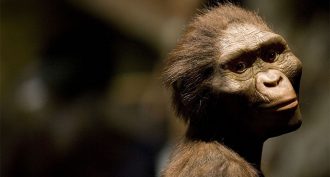 Archaeology
Archaeology‘Cousin’ Lucy may have fallen from a tree to her death 3.2 million years ago
A contested study suggests that Lucy, a famous fossil ancestor of humans, fell from a tree to her death.
By Bruce Bower -
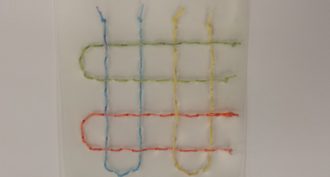 Tech
Tech‘Smart’ sutures monitor healing
Coatings added to the threads used to stitch up a wound let researchers use electrical signals to monitor a wound’s healing — even one covered by a bandage.
By Sid Perkins -
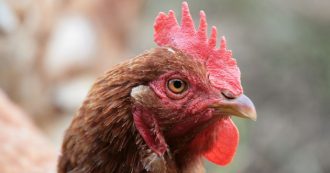 Health & Medicine
Health & MedicineWill chicken cologne guard you from malaria?
Mosquitoes that carry malaria are repelled by the smell of chickens. In malaria country, that could make these birds a human’s best friend.
-
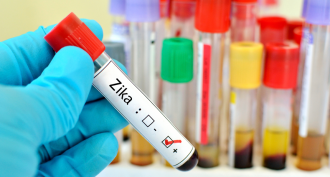 Health & Medicine
Health & MedicineZika can damage the brains of even adults
The Zika virus can damage a developing baby’s brain. The infection can also kill off an important type of cells in adult brains, a new mouse study finds.
By Meghan Rosen -
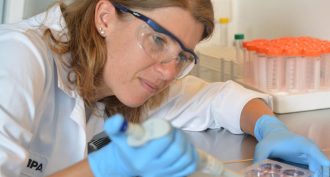 Materials Science
Materials ScienceNano medicines take aim at big diseases
Nanomedicines are new treatments and tools that are taking aim at disease from the cellular level. Medicine’s next big thing could be very teeny tiny.
-
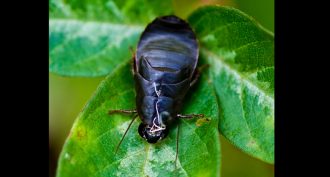 Chemistry
ChemistryGot milk? Roach milk could be a new superfood
Scientists have just figured out the recipe for cockroach milk. And that could be a first step toward making it part of the human diet. Yum!
By Dinsa Sachan -
 Archaeology
ArchaeologyThe first farmers were two groups, not one
The humans that began farming 10,000 years ago in the Fertile Crescent may have been two cultures living side-by-side.
-
 Health & Medicine
Health & MedicineBlame your ‘environment’ for your taste in music
Some scientists had thought we are born with our musical tastes. But a new study finds that what the ear prefers depends on what we listened to as we were growing up.
-
 Health & Medicine
Health & MedicineDiabetes seems to be climbing quickly in U.S. teens
A serious disease is showing up more often in kids. Many are unaware they are sick. Many more show signs they are at risk of developing the disease, for which there is no cure.
By Janet Raloff -
 Health & Medicine
Health & MedicineEven some Olympic athletes cheat with drugs
Some athletes have been using banned drugs or other methods to boost their performance. But scientists are working on new ways to catch them.
-
 Genetics
GeneticsHow fake sugar can lead to overeating
Scientists have found that fruit flies and mice eat more after consuming food laced with a popular fake sugar.
By Dinsa Sachan -
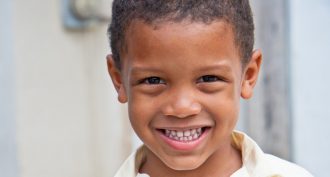 Environment
EnvironmentSomething in plastics may be weakening kids’ teeth
The body can confuse some pollutants for a natural hormone. Researchers in France now find such pollutant exposures in childhood may lead cells to make defective tooth enamel.